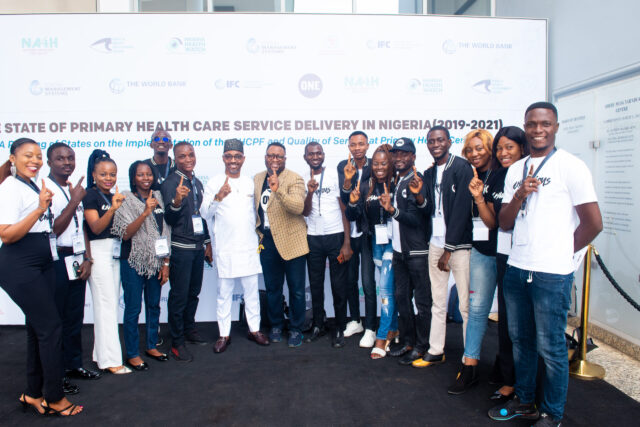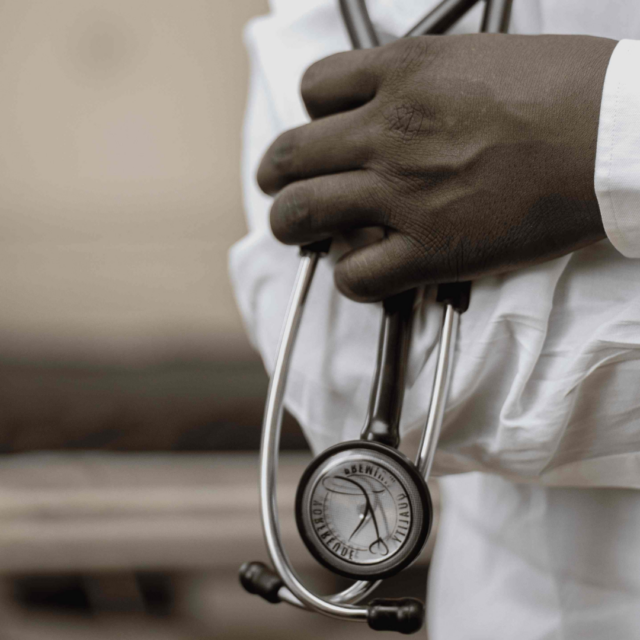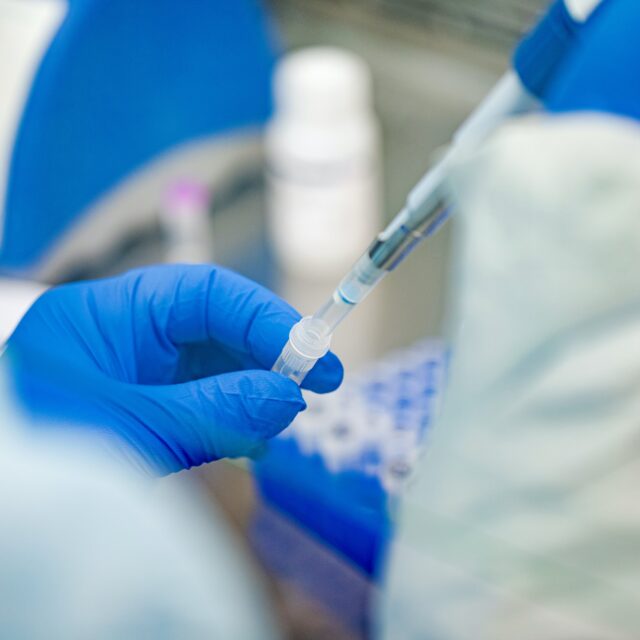Olayemi Amusile and Ayomide Agbaje are ONE Champions in Nigeria.
Earlier this year, ONE and its partners in Nigeria launched the State of Primary Healthcare Service Delivery in Nigeria Report, with data from 2019-2021. The report tracked the health performance of all the 36 states across the federation, provided insights on their implementation of the Basic Healthcare Provision Fund (BHCPF), and put forward concrete recommendations to improve the quality of service at Primary Health Centers (PHCs).
The BHCPF, also known as Huwe, is used for the financial management of primary healthcare in Nigeria. Its aim is to provide a basic minimum package of health services to low-income and vulnerable Nigerians. And as required by the 2014 National Health Act, the government should allocate at least 1% of its Consolidated Revenue Fund (CRF) to the BHCPF. However, in the 2020 budget, the Fund was reduced by over ₦44.4 billion. Worse still, according to the report, since 2001, Nigeria has consistently committed less than 7% of the total annual national annual budget to health, leaving a major gap in the financial resources required to drive the health system.
To increase budgetary appropriation for the BHCPF and achieve quality health outcomes for citizens, ONE Champions Olayemi Amusile and Ayomide Agbaje, are sharing how they will engage their respective state governments and other stakeholders to address the long-standing challenges facing the health sector.
Olayemi on advocating to strengthen the primary healthcare system
In 2021, Nigeria was ranked the 10th least-performing health system due to poor access to essential health care services. This report serves as a wake-up call to all the states to identify lapses in primary healthcare delivery and set in motion workable interventions to address inadequacies for fair access by citizens.
The challenges facing the functionality of primary healthcare centers are huge, particularly because of a shortage of workers, ineffective hospital resources management, inadequate supply of drugs and consumables, poor electricity, and bad infrastructure. The proper and strategic implementation of the BHCPF across all states coupled with the availability of private primary healthcare centers will contribute efforts to rebuild a stronger, more resilient, and better prepared health system in Nigeria.
Delta State, which is my state, has a total of 445 primary healthcare centers across every local government area. While this is a significant feat, there are shortcomings relating to insufficient human resources and an ineffective management system that facilitates training, employment, retention, and more. It is our duty as activists to identify these shortcomings and take actions unique to our individual states that hold governments accountable for gaps in primary health care delivery. This will comprise research, proposal drafting, grassroot campaigns, youth mobilization, and constructive lobbying by using the media and storytelling.
As an activist, I will call the attention of my constituency leaders and the state government to address these inadequacies. I’ll use tools like social media, press conferences, blog posts, and advocacy visits to do so. This will also involve mobilization of people at the grassroots level facilitated by collaborations with youth-led organizations.
Ayomide on leveraging high-level advocacy for sustainable healthcare financing
According to data from the World Bank, the current health expenditure in Nigeria is 3.89% of our total Gross Domestic Product (GDP). But that cannot continue.
We need to advocate for innovative and sustainable health financing mechanisms. They should be anchored on macroeconomic strategies and fiscal policies like the 2021 Finance Act’s Sugar-Sweetened Beverages (SSB) tax. I believe we can achieve this with multidimensional approaches like rallying the support of relevant government institutions, stakeholders, and private-sector investors. But this work starts with citizens and activists demanding strong political will from our leaders at all governance levels to boost spending on the health sector.
As a developing and low-income country, the existing BHCPFis key to ensuring that the Nigerian government builds a comprehensive PHC-oriented health system to achieve universal health coverage. And leveraging advocacy with policymakers at high levels towards open, fair, and inclusive processes for health financing and economics will advance the programme’s full implementation. Advocacy will facilitate citizens to engage in the implementation framework and accountability process on how the funds are spent.
My state in Nigeria, Ekiti State, has disbursed over ₦80 million to 122 PHCs across wards in 16 local governments to ensure operational funds are available for their facilities. As an activist, I have a duty to advocate that my sub-national government make its investment in healthcare a top political priority — starting with its 25% contribution of the funding forBHCPF.. Using advocacy and data-driven journalism, I will also track the funds being used by health authorities and Officers-in-Charge of BHCPF-accredited PHCs for transparency and increased citizen engagement.
Right now, we are at crossroads as Nigerian voters go to the polls in 2023 to elect new governments at all levels. It’s high time our candidates prioritized high-impact agenda and issue-based manifestos that would keep health at the center of governance and legislation. The predisposition of our new political leaders, government officials, and legislators to the health sector will have far greater significance on how primary healthcare will be sustainably financed.
Add your voice to Make Naija Stronger by signing this petition, urging Nigeria’s leaders to improve access to primary healthcare services.



